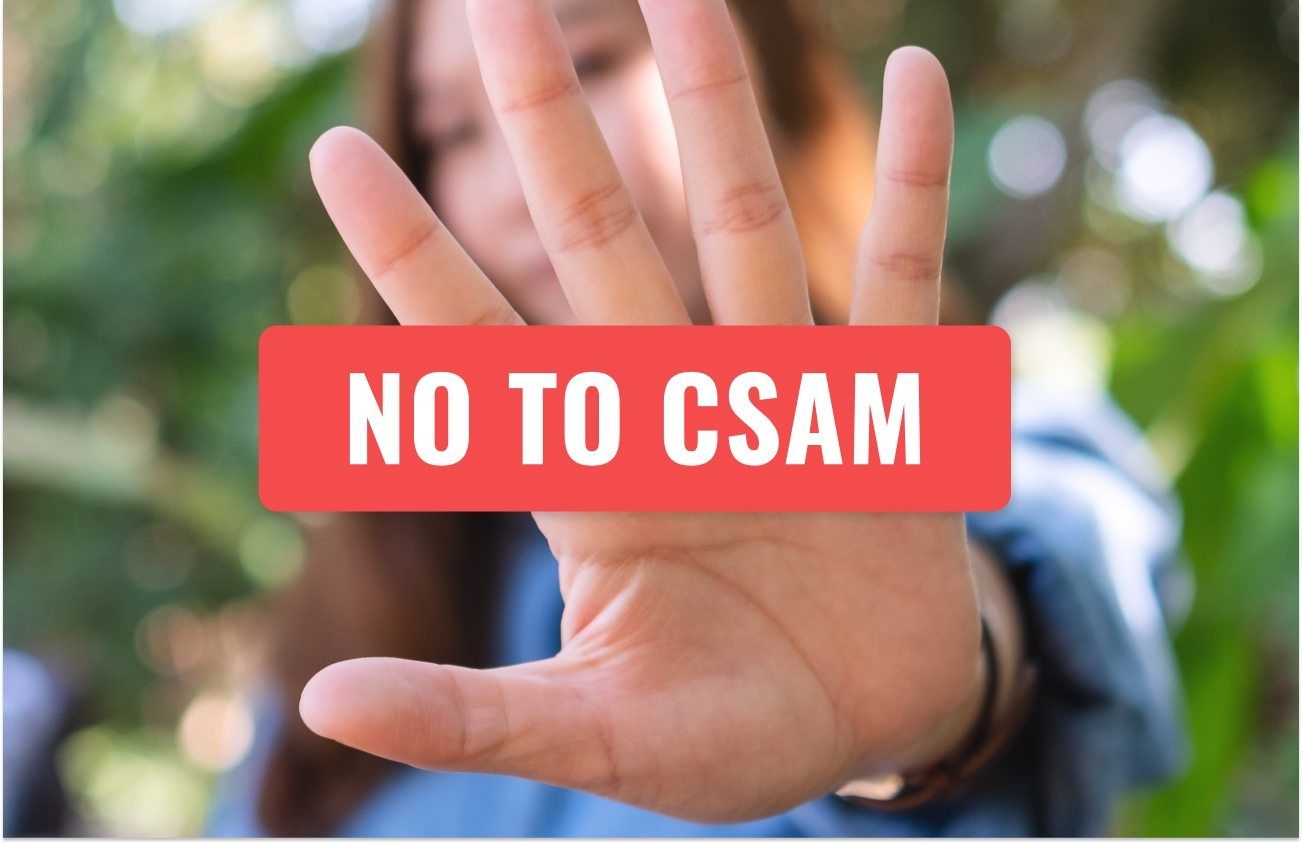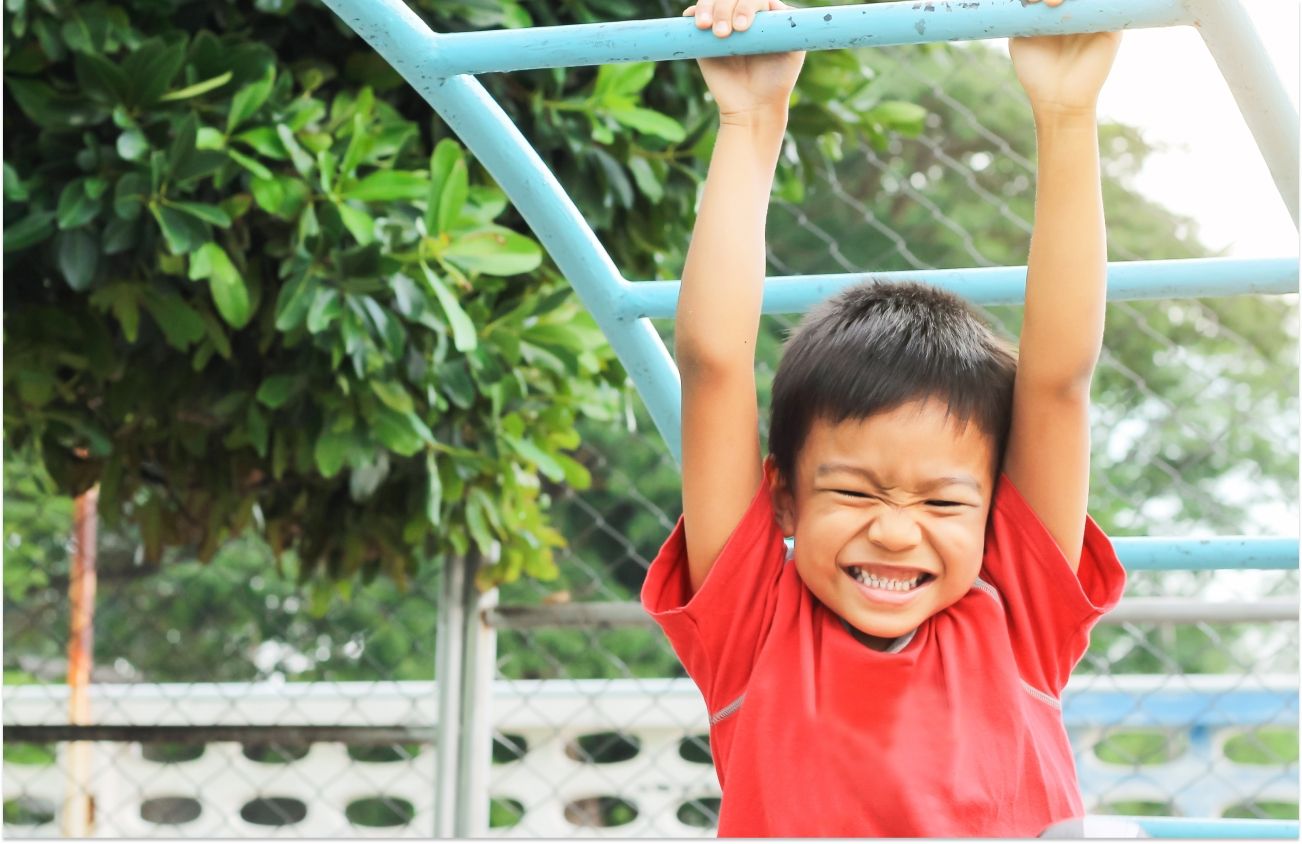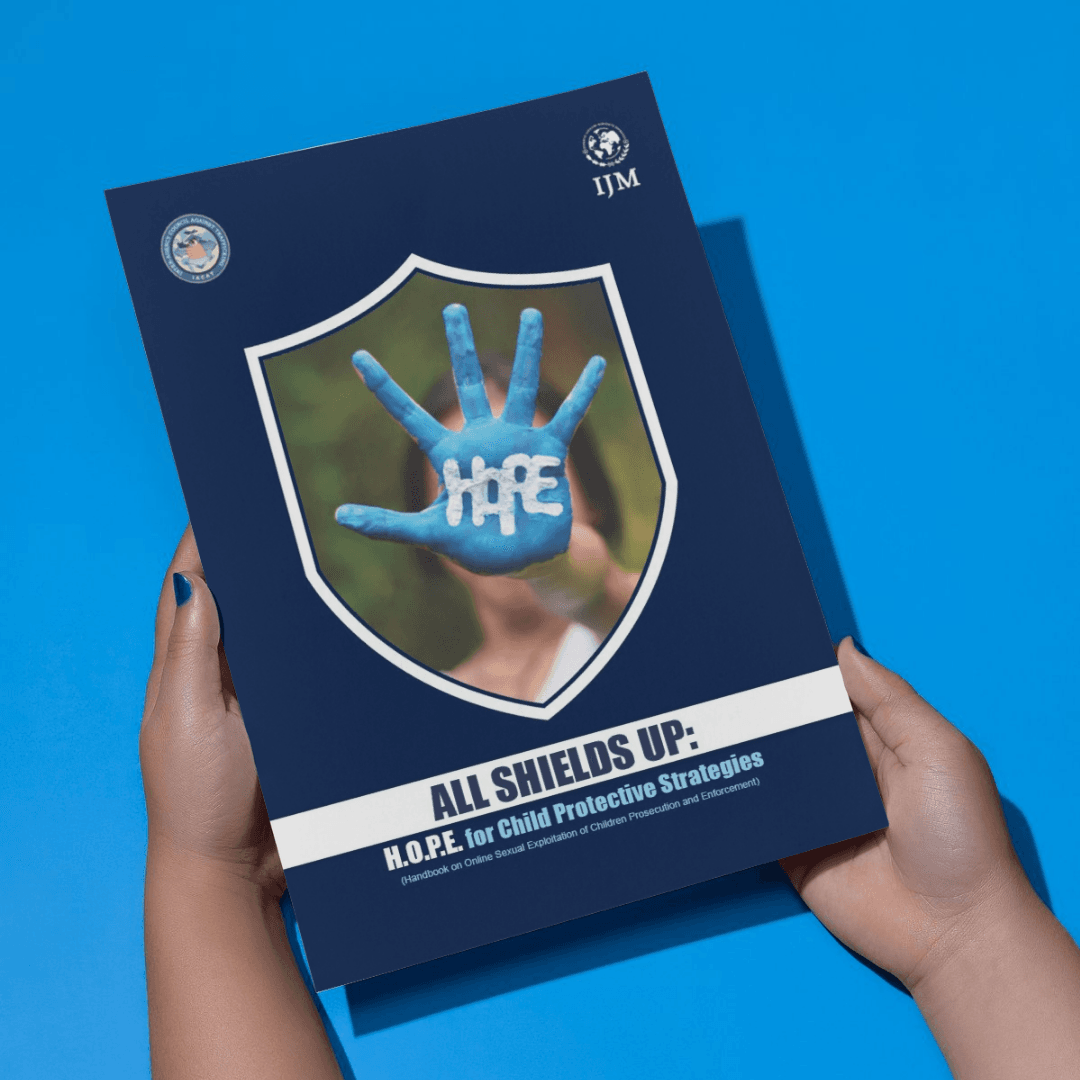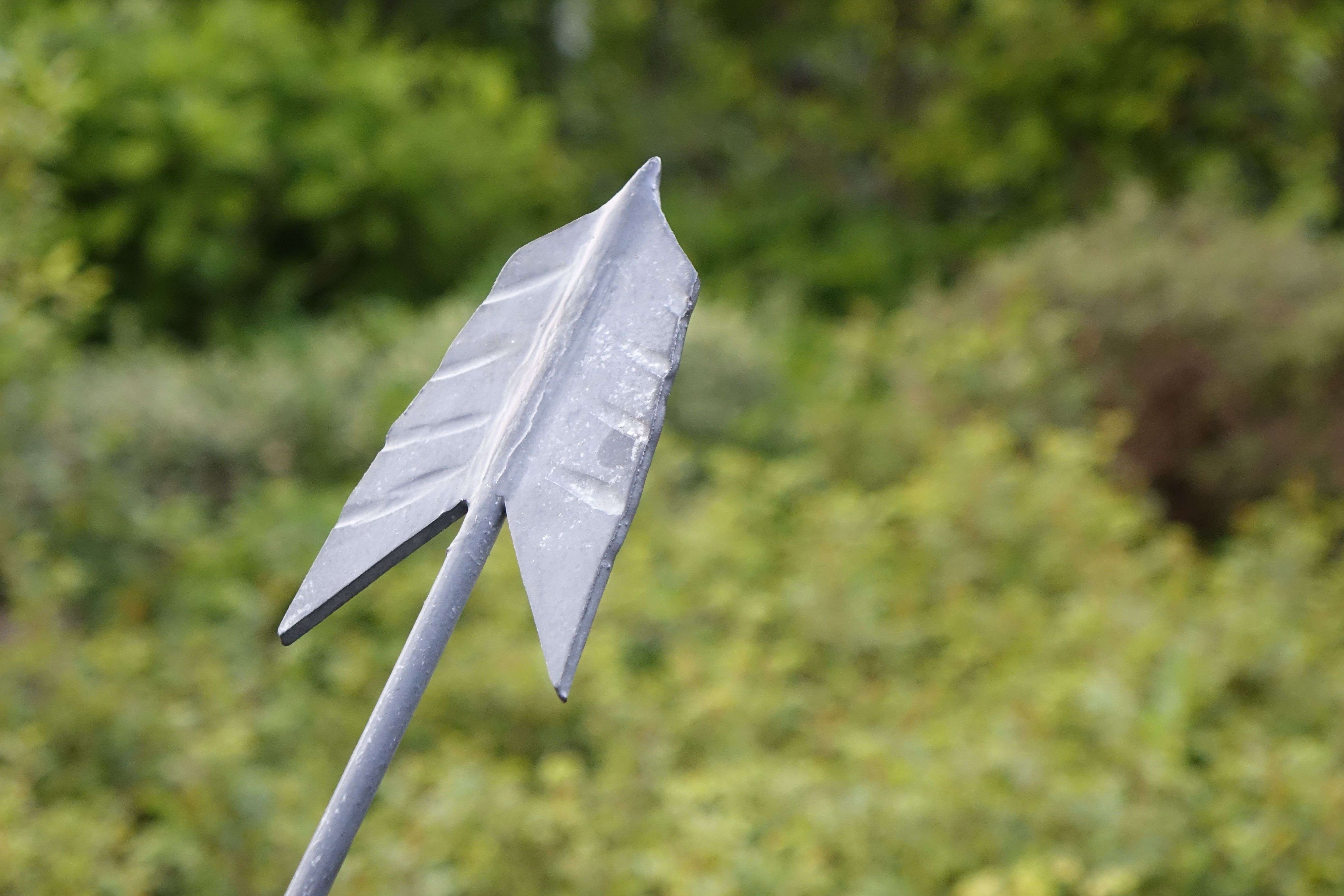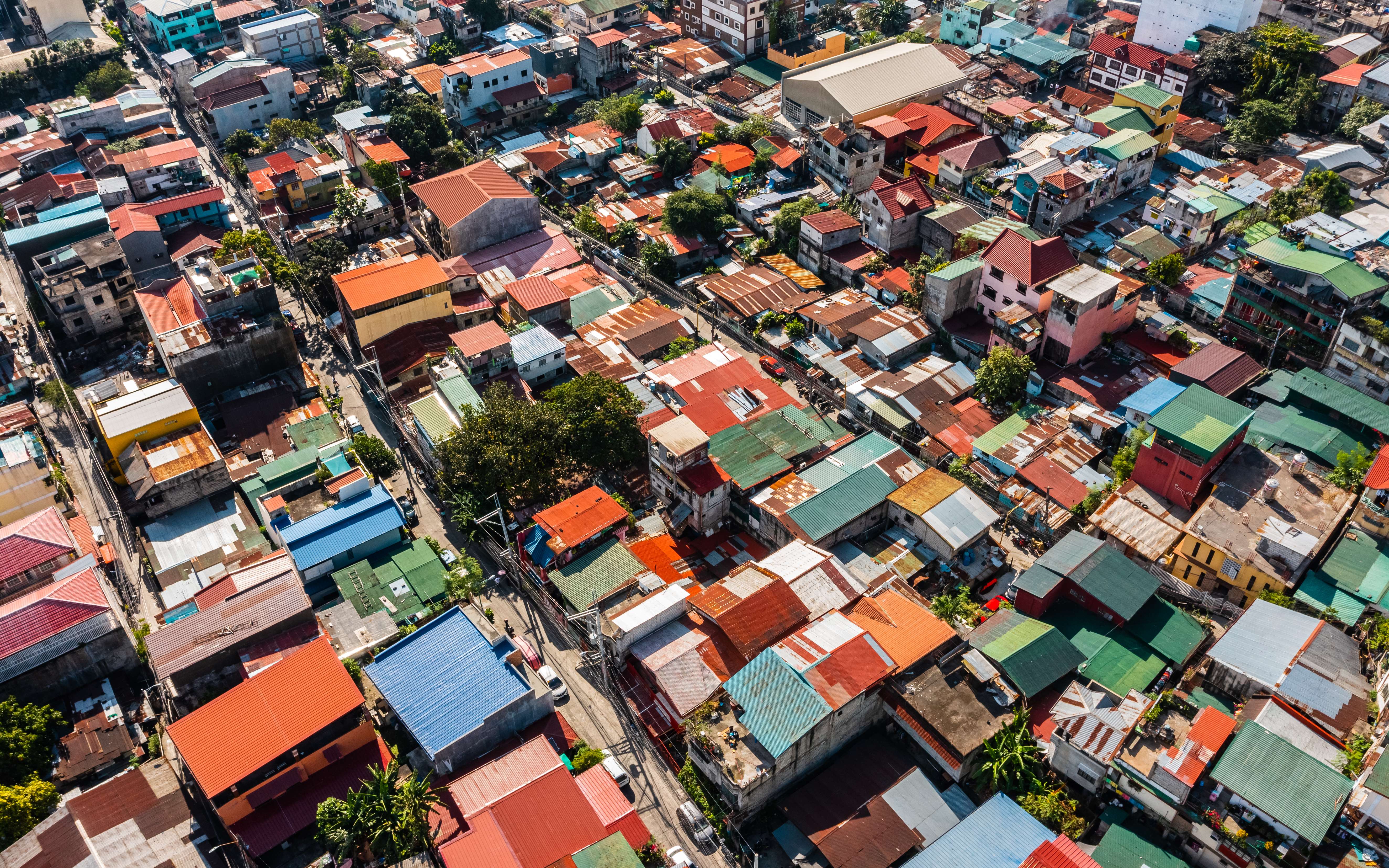
Building on IJM's previous study published in 2020, in March of 2021 IJM's Center to End Online Sexual Exploitation of Children launched the Scale of Harm project to develop a method to estimate the prevalence of the trafficking of children to produce child sexual exploitation materials (referred to as "TCSEM"). In this form of online exploitation, offenders-- typically in Western countries-- pay adults to livestream the sexual abuse of children in real time, or to produce new abuse photos and videos.
Scale of Harm team convened and greatly benefited from in-depth collaboration with an External Advisory Council (EAC) made up of 24 world-class experts, researchers, and field practitioners from organizations across the technology, financial, government, and non-government/child protection sectors.
Today we announce that in close partnership and consultation with the University of Nottingham's Rights Lab and with EAC member support, IJM has developed a robust mixed-method research approach to estimate the prevalence of TCSEM to implement in the Philippines. The approach will combine national household surveys using the Network Scale-up Method (NSUM), with data science analysis of a range of secondary datasets. The Network Scale-up Method is a recognized valid research method to estimate the prevalence of hard-to-reach populations. This method has been featured by the Global Fund to End Modern Slavery (GFEMS) in "Prevalence Estimation: Methods Brief" and used by researchers to estimate the prevalence of child sex trafficking.
As research consultants, the Rights Lab led on the design of the research methodology. Scale of Harm has generated a robust evidence base, along with a comprehensive data directory and viability assessments for TCSEM indicators relating to each dataset-- all crucially enabled by EAC members' strong contributions and generosity of time and expertise.
The Scale of Harm project demonstrates that the child protection sector is mobilized to collaborate and innovate against online exploitation. IJM has positioned research methods innovation within a formidable partnership network from across government, intergovernmental, NGO, finance, tech, law enforcement, and academia, and the results bring optimism that step changes are possible in monitoring and tackling online child abuse." -- Dr. Emily Wyman, Head of Data Impact and Methods Development & Scale of Harm's research lead.
Developing an accurate prevalence estimation method collaboratively with the EAC-- and now implementing it in 2022 to measure prevalence-- is crucial in assessing the effectiveness of interventions to protect children.
This is a remarkable win for everyone working and desiring to end this crime against children. We now have the methodology to measure the prevalence of online sexual exploitation of children that previously was not available. This was made possible through a remarkable group of advisers from the Philippine government and global stakeholders, including the world-leading research team from Nottingham's Rights Lab, showing that it takes everyone's efforts to find the solution. -- Sam Inocencio, Regional Vice President, IJM's Programs Against Online Sexual Exploitation of Children.
John Tanagho, Executive Director of IJM's Center to End Online Sexual Exploitation of Children, said:
Ultimately, successful child protection interventions should lead to fewer children being harmed in the first place. Scale of Harm proves that through global collaboration, we can collectively develop world-leading standards of data measurement to measure violence reduction.
IJM thanks the Local Survivor Network (LSN) in the Philippines for providing feedback and input during Scale of Harm. The LSN is under IJM's Global Survivor Network, which aspires to create safe communities by empowering survivors to become leaders and advocates of enabling justice systems that safeguard the most vulnerable people. Crystal* warmly express her gratitude to the EAC:
Thank you for sharing your expertise and ideas in order to assist us in determining the prevalence of this crime. And thank you for helping us in scaling up globally the safety and protection of children like me. I hope our efforts lead to the rescue of more survivors or vulnerable individuals from the online sexual exploitation of children.
As the Scale of Harm project shifts from method development to implementation, IJM extends its deepest gratitude to key partners:
-
The University of Nottingham's Rights Lab, the world's largest group of human trafficking and modern-day slavery researchers and experts, who were instrumental in Scale of Harm's success.
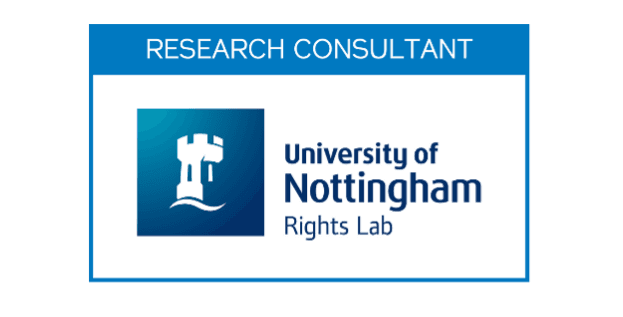
-
The External Advisory Council, whose local and international multi-disciplinary stakeholders definitively shaped, contributed, and supported the development of the project.
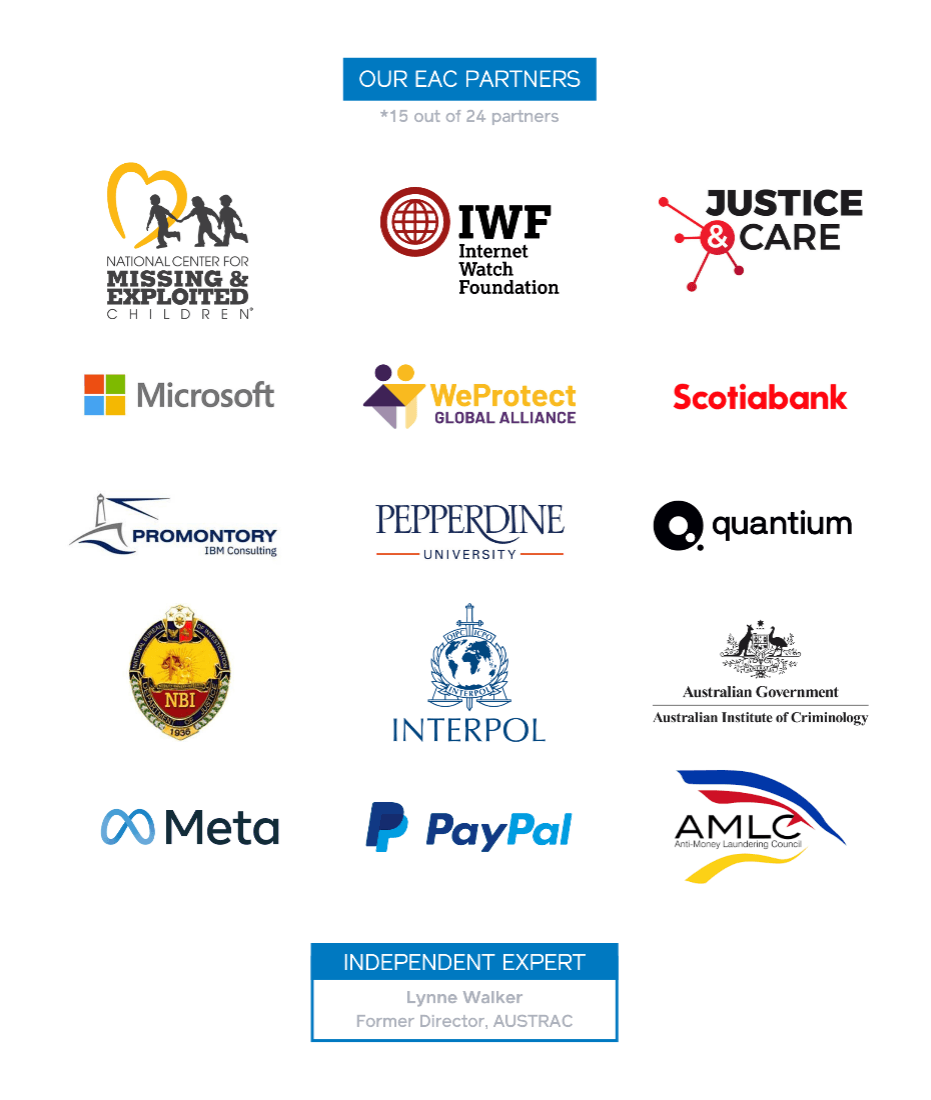
On behalf of the children who will be protected from online sexual exploitation because of your diligence and perseverance, thank you.
Organizations such as internet service providers, electronic service providers, financial sector companies, and others who are interested in exploring collaboration on the implementation of the Scale of Harm methodology in the Philippines in 2022 may contact IJM at [email protected].
*pseudonym

